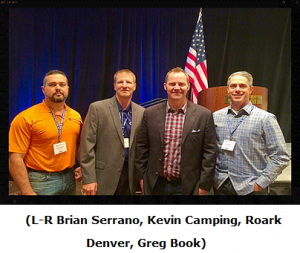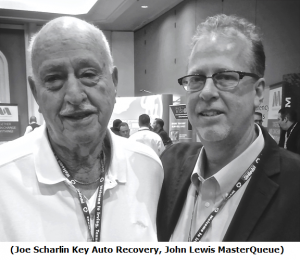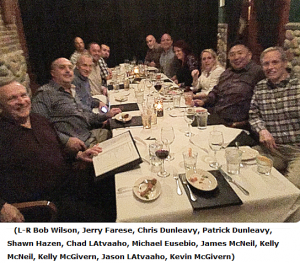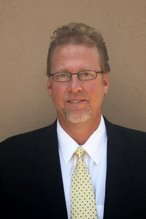GUEST EDITORIAL
Rorke Denver, Author and Former Navy Seal Lieutenant Commander was the main speaker at the North American Repossessors Summit, or #NARS2015 www.RepoSummit.com this past week in Dallas.
Like many, I was surprised as to why a Navy Seal would be speaking at a Repo conference, but as he spoke about walking through the hotel at #NARS15 and meeting the attendees, and specifically the Repossessors and Repossession entrepreneurs and the Vendors, it quickly became apparent as to why he was invited.
“These are my people!” he enthusiastically said to open his keynote address.
I’m used to speaking to corporate America, “’guys in thousand dollar suits, if you know what I mean,” he chuckled, but as I walked around and saw Jeans and Cowboy Hats…THIS IS A TREAT!” he said, as he opened with a warm and friendly tone, like a long lost friend who belonged amongst us.
Two days earlier, he said he had been speaking at the software giant SAP in front of thousands of people.
Commander Rorke Denver (@RoarkDenver on Twitter) spent thirteen years as a platoon commander and training leader for the Navy SEAL’s. During his time as a SEAL, he ran every phase of training for their special-forces missions in the Middle East, Africa and Latin America. Like many of you, he risked his life every day. He also starred in the film “Act of Valor”, and he wrote the book “Damn Few, Making the Modern SEAL Warrior.” He accompanied his friend Chris Kyle, The “American Sniper”, on many missions.
Here is a link to a piece Rorke wrote in the Wall Street Journal this past January about Chris Kyle and the controversy created by some Hollywood guys who spoke out about American Sniper and going to War in general. As Rorke points out in the article, it’s ironic that Chris fought to protect the freedom of speech of guys like Seth Rogan and Michael Moore’s, who’s rights to say things like that wouldn’t be happening if not for guys like Rorke, Chris Kyle, Paul Revere, and the list goes on an on. In fact, its even more ironic when you contemplate that that these guys expressing their First Amendment rights Chris risked his life protecting have no idea what risking their life means, unless you categorize putting your life on the line by eating too many Double Cheeseburgers.
http://www.wsj.com/articles/rorke-denver-the-united-states-of-american-sniper-1422316204
With training being such a critical part of any business, it quickly started to become apparent what Les McCook was thinking when he first heard Rorke speak “in my headphones on the driving range as I tuned into his radio show”, saying “I knew I had to have that guy talking to our group at #NARS15”.
Before becoming an Elite Navy Seal, Rorke was a two-time National Champion Lacrosse player at Syracuse University, where he was Captain of the team. He said the two years they didn’t win, they lost the National Championship by one game. As the years went by, this started eating on him, as he always wondered what was the difference. One year he asked his coach to send him all the player info and stats from his four years at Syracuse. As he described analyzing the historical data, from who the players were, to what were their stats, it was ironic in a way as looking at historical results was a main focal point we heard several vendors and speakers saying at NARS over the prior day and a half.
Not coincidentally, at NARS, the impact of historical data was discussed quite a bit. Greg Crabtree spoke about “How much does it cost to accept and work an assignment?” Frankly, you can’t figure out those numbers unless you track your historical data. Paul Kulas of BellesLink spoke about telephony and the importance of call recording, compliance requirements, and tracking the historical data of calls. He’s made his products more accessible to users through integration, and that makes the data readily accessible in real-time.
 Four LPR companies were represented at NARS: DRN, MV Track, PlateLocate and PRA, and each of these companies track the historical movements of millions of cars out for repossession. This has proven to be extremely valuable data for many Skip Companies over the past few years, and now we’re seeing lenders, forwarders and repossessors starting to recognize the need to integrate and utilize this powerful historical data within their own systems. The consensus of the people we spoke with is everyone hopes the LPR companies will work with the industry to make this data widely available to all through open integration and not through exclusivity that only serves their benefit.
Four LPR companies were represented at NARS: DRN, MV Track, PlateLocate and PRA, and each of these companies track the historical movements of millions of cars out for repossession. This has proven to be extremely valuable data for many Skip Companies over the past few years, and now we’re seeing lenders, forwarders and repossessors starting to recognize the need to integrate and utilize this powerful historical data within their own systems. The consensus of the people we spoke with is everyone hopes the LPR companies will work with the industry to make this data widely available to all through open integration and not through exclusivity that only serves their benefit.
“We didn’t win because of the Rookies” Rorke said.
Like most people in the audience, I thought he meant the rookies, the freshmen, made mistakes that cost them the championship. Actually, it was the exact opposite. It was the impact of the rookies who pushed the seasoned letterman, the Seniors, who quickly realized the Freshmen wanted their jobs, and they were willing to fight for these jobs. This caused the Seniors to realize they immediately had to perform at a higher level during those championship seasons, and the absence of those rookies in the non-championship years to push the veterans was apparent as they came up short, he noted. “The Freshman pushed our returning lettermen harder than any coach ever could because they wanted to earn the positions those guys thought they securely held, but suddenly realized they needed to work harder to keep”.
The analogies to our industry were interesting as I spoke to a few entrepreneurs after Rorke spoke.
“Our Salinas office has been on fire the past few months and when I asked one of the veteran repossessors what happened to cause everyone to perform so much better, the repossessor whose been there the longest told me the new guy was out hustling everyone, and that caused everyone to work harder to keep up”, Michael Eusebio of Digital Dog said.
I heard similar stories from other repossessors who have fought turnover with a more aggressive approach to hiring so they have new people in line before they lose an employee. After speaking with others, it turned out the same concept applied to other areas in our industry.
“When we put our skip tracing software in large financial institutions and skip companies, they moved from the old school copy and paste of data from multiple web sites they have to manually log in to, to just having the data appear through integration to all the data providers, eliminating copy and paste and allowing them to start making more calls to validate and invalidate addresses out for repo, and the lift was immediate. The interesting thing is the older collectors don’t want to change their ways, but when the younger collectors use the new tools, suddenly the veterans take notice when the rookies are out performing them”, Shawn Hazen, lead trainer at masterQueue stated.
The same can be applied to routing and the lift our industry will see from this new technology that was launched at #NARS15. Matt Freeman has been using ClearPlan and he said the difference of new technology as it relates to routing has been a “game changer”. James McNeil of RepoRoute said their platform is similar in some respect, but unlike other platforms, it takes the process of having to create a route “away from the repossessor, saving them as much as ten hours a week in lost productivity”. No matter what, having two new routing options for our industry being launched at NARS is a home run, and if repo and skip software, and the data and LPR providers are integrated into these routing platforms, everyone will win.
The conference was well attended by industry veterans as well as many up-and-comers, evidenced by the ARA’s youth movement meeting that generated 27 people attending a meeting to step up and get involved in helping with the changing of the guard. In addition, Capital One and Ally Bank and TD Auto were there and they were engaged in many sessions and meetings. As an example, Tom Haas, vendor manager of Ally Financial, shared stories of how he started his career at GMAC as a repossessor, taking cars himself by cutting his own keys off a Curtis Key Gun he had in the back seat of his field car twenty-seven years ago, and Dan Valdes spoke of the importance of the brand image of TD Bank and how that correlated to the Brand Image of the companies they do business with being equally important. The participation of the lenders who attended and interacted with the repossessors was critical in allowing both sides to hear each others voices, and as these conferences evolve, its hopeful other lenders will take note and participate.
One thing that has been refreshing to the repossession industry is the advancement of technology. It’s ironic, but the repossessors seem to be moving faster than the banks in this respect. This technology wave was never more apparent than at this show. There were a record number of vendors offering compelling products, and most had a technology spin.
DRN showed up with a cool red BWM motorcycle that was equipped with cameras, and we saw several tow equipment vendors, compliance vendor solutions, and there were several data providers in the house. WhitePagesPro showed up unannounced, and they offered free data trials to repossessors to showcase their new Financial Services product by helping repossessors needing to validate, or more importantly to invalidate, what one speaker said was three and a half addresses now being placed by lenders, forwarders or skip companies on average per repossession assignment, or about double what it was ten years ago. Most data providers offer free trials and the use of data, especially as it becomes more easily accessible and measurable, should have a significant impact on the companies using these tools on the cars not just sitting in the driveway.
One of the best parts of NARS is the opportunity we have to see old friends, and to meet new ones. Below is a photo of Joe Sharlin and I, the first guy I worked for in the Repo Industry after I stopped working for Chrysler Credit in the mid 80s, and about a year before my wife and I started Skipbusters. The industry has come a long way since then, but in many ways we still have a long way to go. Also pictured below is a group of guys, some I’d call legends in the industry, and a few who are the rising stars who will help us old-timers facilitate the eventual changing of the guard.
Another concern in the industry that was addressed at NARS was turnover of the repo agents, with some saying it’s increasing at a more rapid pace than ever due to the many complexities associated with doing the job. From technology challenges of using many systems that don’t talk to each other, to compliance requirements, and with fees continuing to decrease as additional revenue sources from auxiliary fees like property and storage having been cut, its harder for the agents to pay their repossessors a wage equal to the job they’re asked to do. As we listened to Rorke speak, he spoke about a 75% fallout rate for SEALS, and it made me wonder what’s our industry’s turnover for repossession agents?
Rorke explained about things the SEALS go through during training, and ultimately as they go on their missions. As he spoke, it was hard to not think of our industry as he spoke of the importance of making snap decisions, dealing with stress and anxiety, and understanding that there is a very high fallout rate as it’s a very difficult job. He also spoke about the importance of mentorship, “At a minimum, your guys will mimic your behavior, and they likely will amplify your behavior,” stressing how important leadership is.
their missions. As he spoke, it was hard to not think of our industry as he spoke of the importance of making snap decisions, dealing with stress and anxiety, and understanding that there is a very high fallout rate as it’s a very difficult job. He also spoke about the importance of mentorship, “At a minimum, your guys will mimic your behavior, and they likely will amplify your behavior,” stressing how important leadership is.
It was then he spoke about the importance of training to insure the SEAL, (or the REPOSSESSOR, SKIP TRACER or OFFICE SUPPORT STAFF) has the tools to do the job:
- Has the training program available to them been prepared in a manner that equates to the training they deserve so they’re prepared to do the job?
- Are mentors identified and leading the way?
- Once they’re trained about half way, its important they get a pep talk about the importance of having a balance in their life that guarantees that nothing will get in the way of their job
- “Make sure your bills are paid, make sure your life at home is good, make sure your mind is right to perform the job” is what I tell them well before they go into a mission, Rorke said.
- This seemed relevant, as how many times have you had employees outside lives affect their jobs?
- “Make sure your bills are paid, make sure your life at home is good, make sure your mind is right to perform the job” is what I tell them well before they go into a mission, Rorke said.
- “Be Calm”
- He shared the story of a commander who said the most important quality to have when adversity arises, and if you’re a SEAL, or you work for a REPO COMPANY, where you are guaranteed your share of challenges, stress and adversity, this advise is critical
- “Remain calm at all times.”
- He shared the story of a commander who said the most important quality to have when adversity arises, and if you’re a SEAL, or you work for a REPO COMPANY, where you are guaranteed your share of challenges, stress and adversity, this advise is critical
I can only hope Rorke can come back to NARS, and soon, not only so everyone can hear his story as many missed it this year, but so we can find a way to get a day of workshops out of him to help each of us build better organizations and training programs. At the end of the day, there are probably some unique similarities to the mental aspect of training Navy Seals and Repossessors as both do a job that’s more challenging than 99% of the jobs most people do.
On a final note, there we’re several people and companies not in attendance. Some had prior commitments, for some it was an expense they just couldn’t afford, and some had agendas for not coming they should rethink. Unfortunately, some we lost this year and some had health issues preventing them from attending, but those people were definitely there in spirit, and as you read this please stop and remember to tell your family and friends you love them, and say a prayer for those in need, and for the families of those we lost.
This was the third NARS conference I’ve attended and I was quickly reminded what this industry has meant to my family and I, and to the people who have worked for us through the years. This is the place we come together to be one, and if we are to move forward as an industry, we must embrace opportunities like NARS even more in the future. There needs to be a NARS East Coast, a NARS West Coast, and an Annual NARS in DFW as the centerpiece. There is too much camaraderie and valuable insight to only do this once a year. Recruit your friends, organize group sessions, stand up and make a difference, as you can help. Support those vendors who have a genuine interest in helping our industry, and educate those who do not, either through your words or your actions. Each of you can make a difference when you act independently. If you don’t stand up, we may not have an industry in ten years to support, as the trend has to change, as does our direction.
###
 John Lewis started as a repossessor for Chrysler in 1982, and when he left he was a corporate skip tracing trainer. In 1988, he and his business partner and wife Perla Lewis started one of the first skip tracing companies in the US; Skipbusters, and then Crown Recovery in 1990, River City Auto Recovery in 1993 and ARS in 1994, all of which they had sold by 1999. After spending 2000-2006 out of the industry, John and Perla returned to build technology solutions for the industry. He’s currently President of Find John Doe, and he co-founded the masterQueue® skip tracing platform, used by some of the largest lenders and skip companies in auto finance, with several partners. In 2014, he became a partner in RepoRoute, a repossession routing platform intended to help the repossession industry more efficiently route assignments for repossession by using predictive analytics.
John Lewis started as a repossessor for Chrysler in 1982, and when he left he was a corporate skip tracing trainer. In 1988, he and his business partner and wife Perla Lewis started one of the first skip tracing companies in the US; Skipbusters, and then Crown Recovery in 1990, River City Auto Recovery in 1993 and ARS in 1994, all of which they had sold by 1999. After spending 2000-2006 out of the industry, John and Perla returned to build technology solutions for the industry. He’s currently President of Find John Doe, and he co-founded the masterQueue® skip tracing platform, used by some of the largest lenders and skip companies in auto finance, with several partners. In 2014, he became a partner in RepoRoute, a repossession routing platform intended to help the repossession industry more efficiently route assignments for repossession by using predictive analytics.











